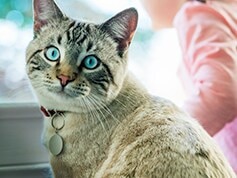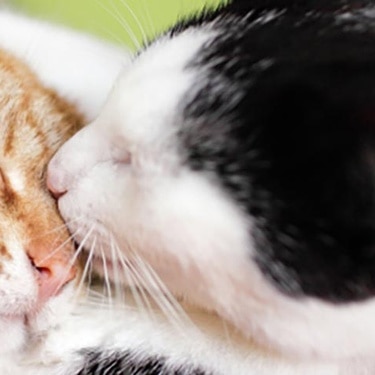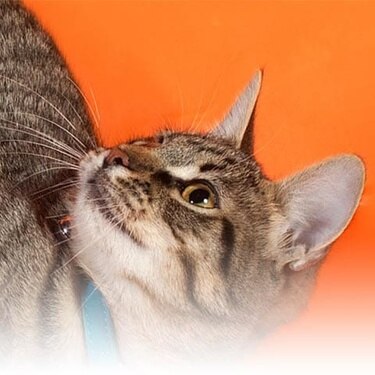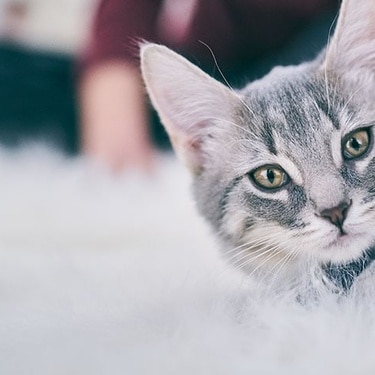
-
Find the right food for your petTake this quiz to see which food may be the best for your furry friend.Find the right food for your petTake this quiz to see which food may be the best for your furry friend.Health CategoryFeatured products
 Adult 6+ Large Breed Chicken Meal, Barley & Rice Recipe Dog Food
Adult 6+ Large Breed Chicken Meal, Barley & Rice Recipe Dog FoodSupports energy level, joint health, and beautiful coat in large breed mature dogs
Shop Now Puppy Sensitive Stomach & Skin Salmon & Vegetable Stew
Puppy Sensitive Stomach & Skin Salmon & Vegetable StewGentle on stomachs while nourishing skin & supporting development in growing puppies
Shop Now Adult Perfect Weight & Joint Support Chicken & Brown Rice Recipe Dog Food
Adult Perfect Weight & Joint Support Chicken & Brown Rice Recipe Dog FoodThis weight management and mobility support dog food was created with Hill’s unique understanding of the biology of overweight dogs.
Shop Now -
DogCat
- Cat Tips & Articles
-
Health Category
- Weight
- Skin & Food Sensitivities
- Urinary
- Digestive
- Kidney
- Dental
- Serious Illness
-
Life Stage
- Kitten Nutrition
- Adult Nutrition
Featured articles Water
WaterWater is the most important nutrient of all and essential for life. Animals can lose almost all their fat and half their protein and still survive, but if they lose 15% of their water, it will mean death.
Read More The Right Diet For Your Pet
The Right Diet For Your PetLearn what to look for in healthy pet food & nutrition, including ingredients, quality of the manufacturer, your pet's age, and any special needs they have.
Read More Pet Food Storage Tips
Pet Food Storage TipsWhere you store your cat and dog food can make a big difference in the quality and freshness once it is opened. Here are some common questions and recommendations for optimal storage for all of Hill’s dry and canned cat and dog food.
Read More -


When it comes to your cat, you want to make sure she has the best kind of cat food for her nutritional needs. From time to time, you may be tempted to give her table scraps and special treats, but bear in mind that certain foods can be poisonous to her. Here’s a look at some of the most toxic foods for cats.
Onions and Garlic
Onions, garlic, shallots, and scallions can cause damage to your cat’s red blood cells and lead to anemia. These foods are typically poisonous when eaten in large quantities, but exposure to concentrated forms of onion or garlic, such as onion soup mix or garlic powder, can also be toxic. Cats with symptoms of lethargy, weakness, reduced appetite, pale gums, and orange to dark red urine should be taken to the vet immediately.

Raw Eggs, Raw Meat & Bones
Just like humans, consumption of raw eggs or raw meat can lead to salmonella or E. coli poisoning in cats. Symptoms of the illness vary but can include vomiting, diarrhea, and lethargy. Salmonella and E. coli can also be transmitted to humans, so be careful to properly wash your hands after cooking and keep your cat away from these raw foods. Raw eggs also contain an enzyme that can lead to skin and coat problems. Keep your cat from eating raw bones as well—she could choke on them, injure her digestive tract, or damage her teeth.
Chocolate and Caffeinated Drinks
We’ve all heard that chocolate can be fatal to dogs, but it’s just as poisonous for cats as well. Chocolate contains substances called methylxanthines, which can cause vomiting and diarrhea, high body temperature, muscle tremors, abnormal heart rhythm, abdominal discomfort, increased thirst, and seizures. Methylxanthines are also found in caffeinated beverages and should be avoided. See your vet if your cat experiences any of these symptoms. As a general rule of thumb, darker chocolates are more dangerous than milk and white chocolate.
Alcohol and Raw Dough
Alcoholic beverages and foods that contain alcohol can be dangerous for your cat. Ingestion can cause vomiting, diarrhea, tremors, disorientation, trouble breathing, coma, and even death. It’s also important to keep your cat away from raw dough. Raw dough causes expansion in the stomach, or creates alcohol in the stomach. If you think your cat has ingested even a small amount of alcohol, take her to the vet immediately.


Tasty Tips
Milk and Dairy Products
Even though your cat may enjoy drinking milk, it isn’t necessarily good for her. Cats have trouble digesting the lactose in milk, which can cause an upset stomach or diarrhea. Most cats are only exposed to lactose from their mother's milk when they are kittens. Because kittens only drink from their mother’s milk for a few weeks, their digestive systems are often not equipped to handle a reintroduction to lactose. So, while some cats have no trouble tolerating milk, they are not recommended to drink anything but their mother’s milk while kittens, due to the possibility of digestive issues.
Grapes and Raisins
Even a small amount of grapes and raisins can cause your cat to become ill — they can even lead to rapid development of kidney failure. Within 12 hours of ingestion, vomiting sometimes occurs. Other signs that can show up within 24 hours include lethargy, diarrhea, reduced appetite, abdominal pain, decreased urination and abdominal pain.
Although it isn't clear why, grapes and raisins can cause kidney failure in cats, and even a small amount can make a cat ill. Repeated vomiting and hyperactivity are early signs. Although some cats show no ill effects, it's best not to give your cat any grapes and to keep grapes and raisins off countertops and other places accessible to your cat.
Dog Food
Though dog food is not toxic to cats, your cat needs a very different set of nutrients than a dog. Cat food should contain plenty of vitamin A, taurine, arachidonic acid and protein, and dog food has much lower levels of these nutrients. Dogs can survive with lower levels of vitamin A and protein, while cats cannot. Dogs are also able to produce taurine and arachidonic acid, but cats must have these acids in their food. Without a sufficient amount of taurine, cats can develop heart disease, vision and dental issues.
Preventing Cats from Eating Dangerous Foods
Your cat’s life and well-being depend on the type of food she eats. By keeping poisonous and hazardous foods out of her reach, as well as making sure she consumes a balanced food, you are helping her stay healthy.
Here are some easy tips for preventing your cat from eating dangerous and toxic foods:
- Store foods out of your cat’s reach. Installing cat-proof locks on cabinets may be necessary for a curious kitty.
- Do not let your cat on the counter while you’re cooking or eating.
- Do not feed her table scraps.
- It is especially important to be more mindful during the holidays. There is likely more enticing people food around, much of which can upset your cat’s tummy or even harm her.
If you notice or suspect that your cat has eaten one of these foods, take her to your veterinarian immediately. While some of these foods may only cause your cat slight discomfort, others can be far more hazardous to her health. If in doubt, ask your vet for guidance.
Related products

With delicious chunks in a decadent gravy

With delicious chunks in a decadent gravy

With delicious chunks in a decadent gravy

Gourmet daily nutrition, carefully made. Tasty chunks with chicken & beef in a decadent gravy. Supports digestive health, nourishes skin and promotes a lustrous fur.
Related articles

Being overweight puts a cat at risk for developing many serious health issues. Weight gain indicates an increase in body fat and usually results when your cat eats too much and exercises too little.

As a responsible pet owner you owe it to yourself and your cat to understand problems associated with overweight cats.

HillsPet Nutrition provides information on proper nutrition, fitness and special needs in keeping your cat healthy and happy.

Get helpful information on proper feline oral healthcare and why it's so vital to take care of your cat's teeth.

Put your cat on a diet without them knowing
Our low calorie formula helps you control your cat's weight. It's packed with high-quality protein for building lean muscles, and made with purposeful ingredients for a flavorful, nutritious meal. Clinically proven antioxidants, Vitamin C+E, help promote a healthy immune system.
Put your cat on a diet without them knowing
Our low calorie formula helps you control your cat's weight. It's packed with high-quality protein for building lean muscles, and made with purposeful ingredients for a flavorful, nutritious meal. Clinically proven antioxidants, Vitamin C+E, help promote a healthy immune system.


